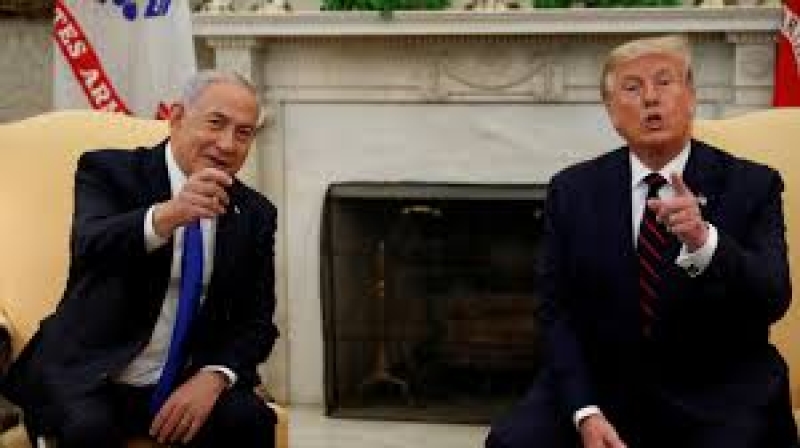- US, Bangladesh explore expanding collaboration in energy sector |
- Tarique wraps up 2nd phase of campaign with 6 rallies in 14 hrs |
- Tigers return but deer on decline in Sundarbans |
- Dhaka worst in global air pollution with very unhealthy AQI |
- JICA, Milestone School sports festival to support students’ emotional recovery |
Trump to Meet Netanyahu for Critical Gaza Ceasefire Talks

Israeli Prime Minister Benjamin Netanyahu will meet with US President Donald Trump in Washington on Tuesday to discuss the future of the fragile ceasefire between Israel and Hamas. Netanyahu’s visit marks his position as the first foreign leader to meet Trump since his return to power, following the inauguration on January 20.
Netanyahu's Washington trip is centered on advancing talks for a longer-term truce with Hamas, which has yet to be finalized. Trump, who has touted his role in brokering the current ceasefire, has proposed a controversial plan to "clean out" Gaza, suggesting the relocation of Palestinians to neighboring Egypt or Jordan, despite strong opposition from these countries and Palestinian leaders.
Ahead of his visit, Netanyahu remarked that Israel's ongoing conflicts with Hamas in Gaza, Hezbollah in Lebanon, and Iran have "redrawn the map" of the Middle East. He expressed confidence that through cooperation with Trump, Israel could continue to reshape the region for the better.
The meeting at the White House is viewed as pivotal for the region, which has been ravaged by war since the deadly October 7, 2023, attacks by Hamas on Israel. Netanyahu's status as the first foreign leader to meet with Trump post-inauguration underscores the significance of the US-Israel alliance.
While Netanyahu faced strained relations with President Joe Biden over the escalating death toll in Gaza, Trump’s support of Israel’s military actions and his firm stance on the ceasefire has strengthened the ties between the two leaders. Trump has also been advocating for the normalization of relations between Israel and Saudi Arabia—a goal he pursued unsuccessfully in his first term.
However, Trump struck a cautionary tone during a Sunday interview, acknowledging that while talks with Israel and other Middle Eastern nations were "progressing," "there are no guarantees that the peace is going to hold." His Middle East envoy, Steve Witkoff, who met with Netanyahu on Monday to discuss the second phase of the ceasefire, expressed cautious optimism, saying he was "certainly hopeful" about the truce’s durability.
Hamas has indicated its willingness to negotiate the terms of the second phase of the ceasefire, which may involve the release of remaining hostages and could pave the way for a more permanent peace. However, Trump’s proposal for the mass displacement of Gaza’s population remains highly contentious, with strong rejections from Egypt, Jordan, Qatar, and Palestinian officials.
Under the first phase of the ceasefire, Hamas has released 33 hostages in exchanges for around 1,900 Palestinian prisoners held in Israeli jails. This phase, which has lasted for 42 days, has brought significant humanitarian aid to Gaza and allowed some displaced Gazans to return to northern parts of the territory.
The death toll from the conflict is staggering: over 47,000 people, mostly civilians, have been killed in Gaza since Israel’s retaliatory strikes began after Hamas’s October attacks, which resulted in the deaths of 1,210 Israelis. In addition to Gaza, Israel has also ramped up operations in the occupied West Bank, targeting extremists in an effort to quell violence in the region.

